Syria – the forgotten war
It has gotten quiet around Syria in the Media, although the fighting continues undiminished. In the Shadow of war, there is a inconceivable Refugee Drama happening. A few days ago i drove into the Jordan-Syria border area to get a picture of the situation.
Crowd-Translation by Nils Hitze, Matthias Lewen, Rene Götzenbrugger et alt. (original German blogpost)
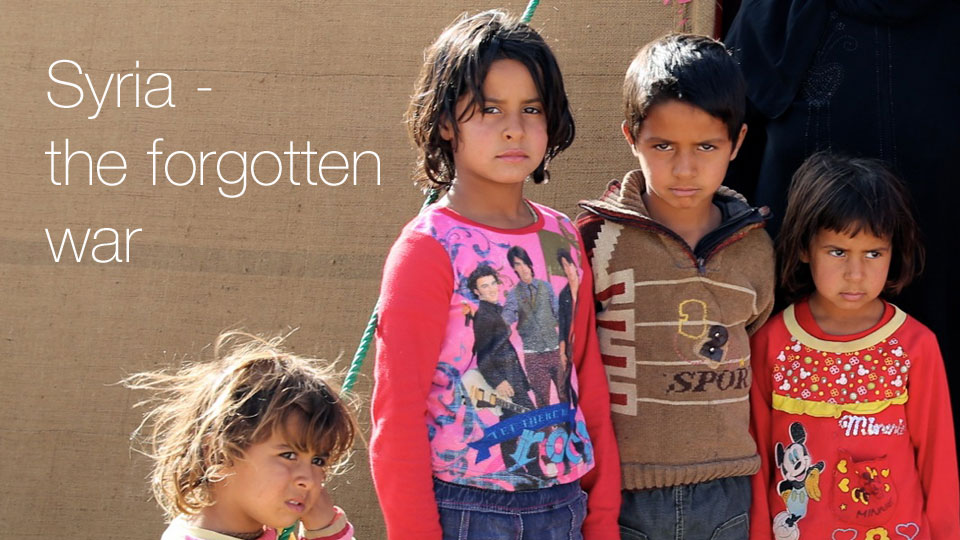
A week ago around this time I was sitting barefoot and crosslegged in a sparse tent at the edge of Mafraq, Jordan, 20 kilometers south of the syrian border. Across from me, dressed in a black garment, Fatima, Syrian of Sunni Decent. Beside her, four kids in colorful sweaters. Calm and with a low voice the 38 year old tells me her story.
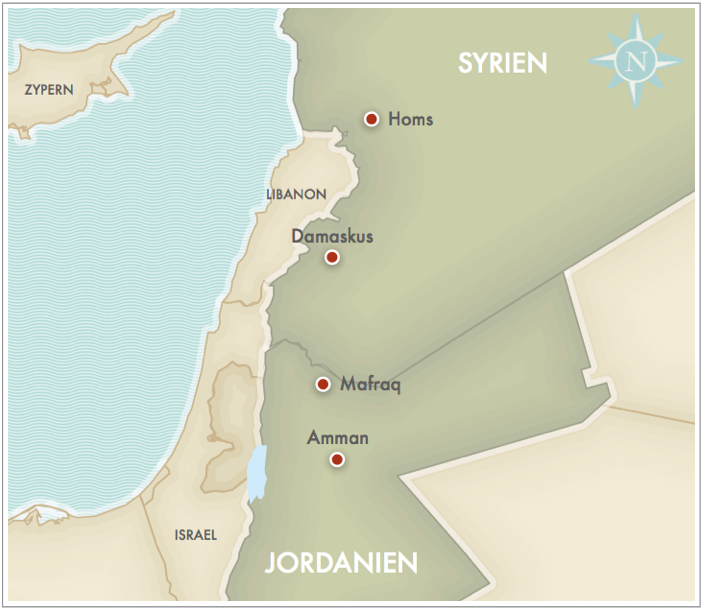
Soldiers came to her house in the middle of the night. They accused her husband of terrorism, hit him with the barrel of their guns in front of the children. They threatened to shoot the children, if they wouldn’t stop yelling immediately. “And then?” I wanted to know. “I commanded my children to press their hands against their mouths and cry in silence.”
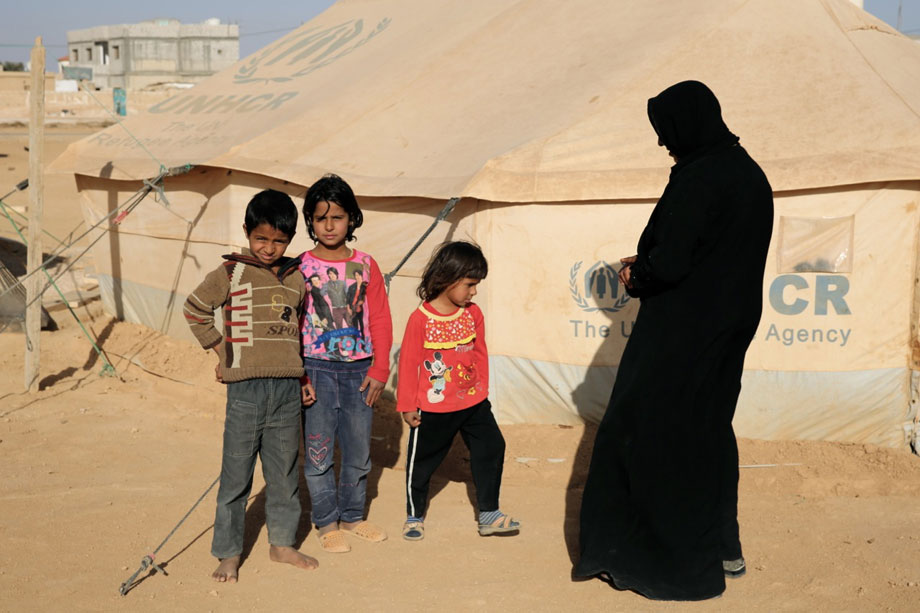
Escape from Homs
They fled the same night, tells Fatima, out of the city. When they were to exhausted to continue, they knocked at a house. Christians lived there. “They received us, although they didn’t know us!”, tells the mother of five. Gratitude in her voice. “The next day they brought us to the city border in a van”. From there they fled across multiple stops in the direction of the Jordan border.
A few hours in this land filled my notebook with incomprehensible reports: the story of Fadia, for example, a young widow from Damaskus. Her Husband had been executed with two headshots right before her eyes. With good luck she made it across the border, to bear their child. Or the story of Nedir, Computer Science Student from Homs. “One day we no longer dared to go to the university, because of the snipers”, told me the 24 year old. Two years ago, her fiance was imprisoned. After that she never heard from him again.
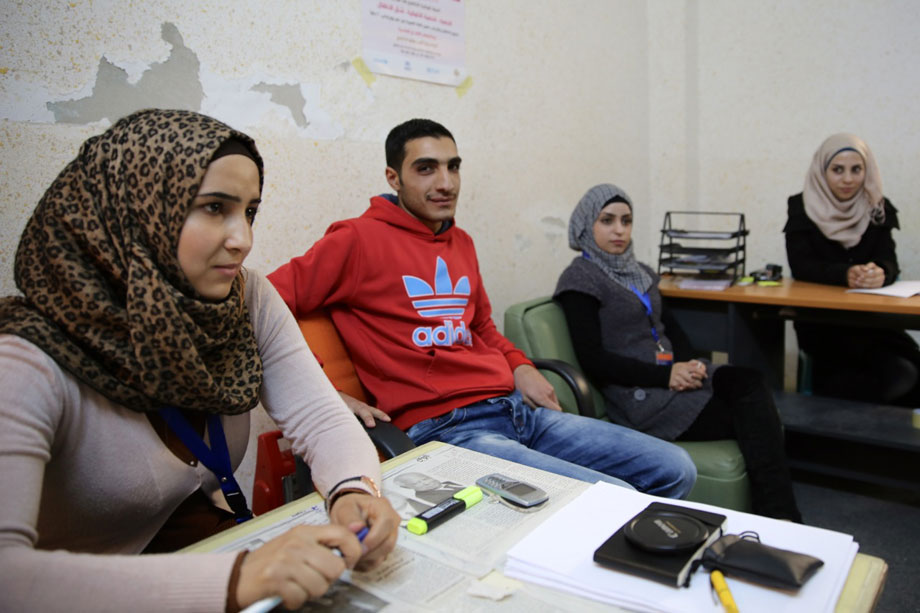
Biggest humanitarian catastrophe since Ruanda
You’ll mainly see women and children in the refugee camps along the border. To date, the Kingdom of Jordan took in 560,000 refugees from Syria. That’s around a tenth of the overall Jordan population. (In comparison: Germany right now houses 15,000 Syrians). Round about one million of the 2.2 Million refugees outside of Syria are children. The UNO Refugee Program UNHCR says in a report that this is the biggest humanitarian catastrophe since the genocide in Ruanda.
Although Jordan, with a GDP [Gross Domestic Product] of barely 30 Billion Dollar, counts as one of the poorer states in the Middle East (no Oil, no largescale industry), their borders stay open to refugees. One of the first places to go for homeless Syrians is the Zaatari-Camp, a “tent city” that was erected by the UN out of the desert sand right behind the border crossing. 115.000 refugees live here, cramped up in a confined space like animals.
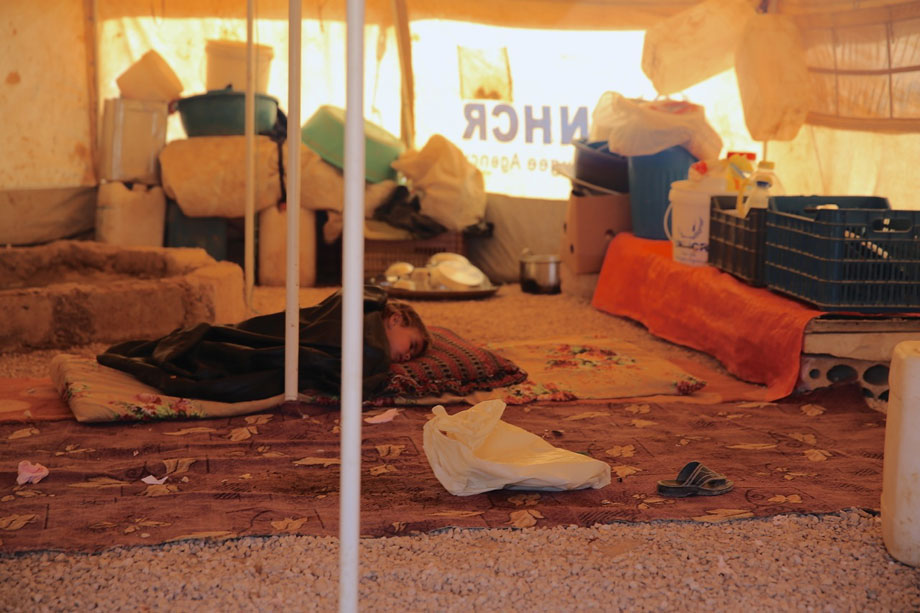
Cabin Fever and child labor
Fatima too persisted here with her family for almost two months. Until she couldn’t take it anymore. The sickness, the boredom. There was nothing to do, she tells. One day she packed her belongings and went to eastern located Mafraq, where she put up her UNRefugee Tent on a free area at the gates of the 60,000 inhabitant city. On my journey through Jordan I saw some of these white tents, on the left and the right of the streets, in the middle of the landscape.
70 percent of the refugees are doing it like Fatima, trying their luck outside of the camps. The people prefer cities like Mafraq, Irbid or Amman, to get a fixed roof, something to do, to at least live a selfdetermined life.The reality looks different. Jordan is an expensive country. The cost for rent and food are equal to Europrices in Germany. Because the refugees themselves are not allowed to work, it is often the children, who are providing for the livelihood (UN-Report).
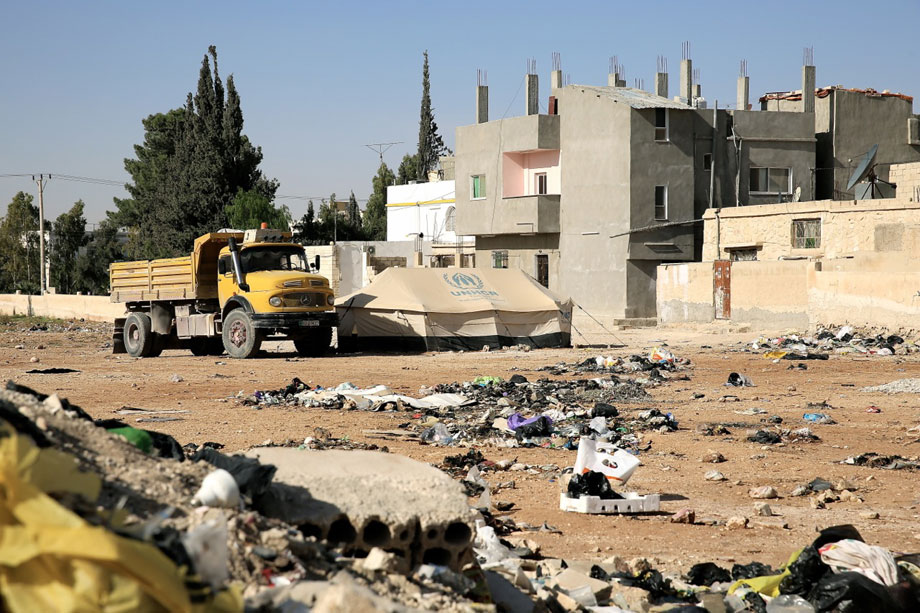
From lawyer to pleader
Onsite visit at the CARE-Refugee Centre in Mafraq. Here, the case managers are currently engaged in recording the new arrivals. It’s Mamdouh’s turn. In his previous life the 38 year old father was a respected lawyer. That was then, a year ago. Now he’s sitting here in the Refugee Centre, on a cheap plastic chair, and is a pleader.
He tells about the mass murders in his homeland and his escape across the desert for days on end. Tears in his eyes.
Help us - no matter how
Today Mamdouh is lucky. On the indigence scale of the Refugee Organization he is a “15”. That qualifies him for financial support in amount of 130 jordan dinar, around 135 Euro (180 USD). He doesn’t get them in cash, but as moneycard with a PIN code. Just in case. Up to three times he can apply for the monetary benefit, explains Johanna Mitscherlich, CARE employee from Germany. After that he and his family are on their own.
What Mamdouh wishes for from rich countries like Germany? He says “Support, no matter the form”. “You must not forget us!”. The young volunteers here in the Helpcenter, all of them Syrian refugees, too plead for more international sympathy: Scholarships or university places would be great, that, they all agree on. When the war is over, one day, a whole generation of Syrians will be without an education. With that, the war would continue their whole life.
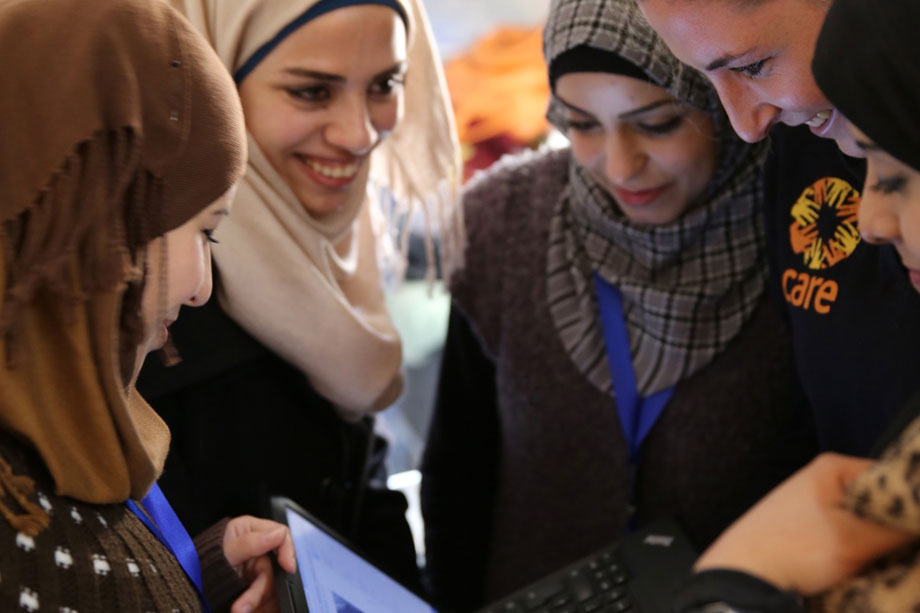
The wrath of god
Back in the refugee tent of Fatima on the outskirts. The displaced woman has started in recent weeks to dam up the inside of her tent with additional plastic foil. Winter is around the corner. Also Snow. There is no electricity, no stove only blankets. “In my wildest dreams, I would never imagine a life like this” she’s complains. I want to know, whether she even knows what this war is all about? “I dont have a clue”, she says. “Maybe god was wrathful”.
Where her husband is, I’d like to know before our farewell. Fatima raises her forefinger and points to the metal scaffolding of the tent, two meters above us. A chill runs down my spine, even before the translator finishes the translation. “My children found him there”, she says. “Hanged.” He was sick and desperate, because he wasn’t able to feed his family anymore. He saw no way out and took his life. Out of shame.
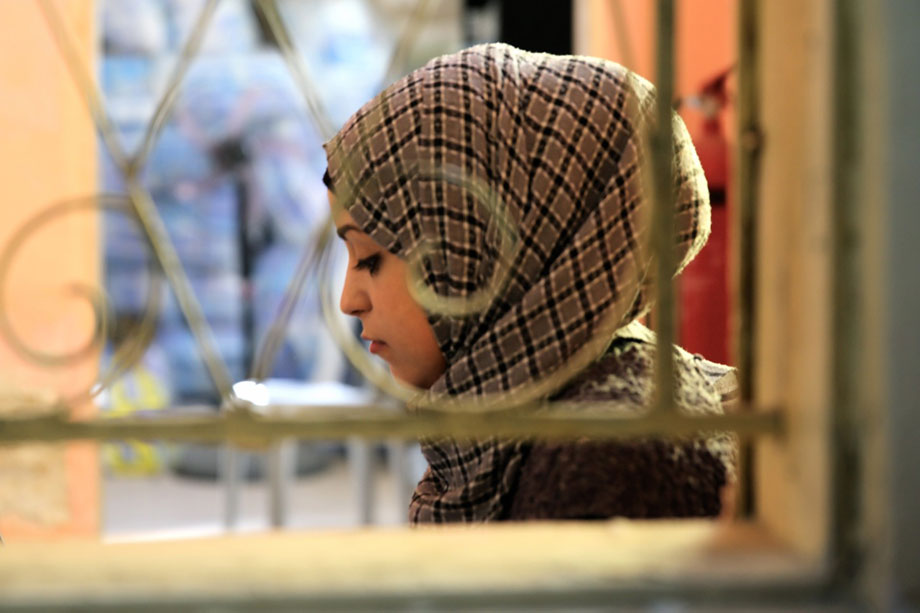
If you want to support the work of CARE here you can find the donation page for Syria. On this page you can donate money for the refugee agency of the United Nations. Updated figures, tables and reports about the UNHCR are available here.
[…] Um Syrien ist es still geworden in den Medien, und das obwohl die Kämpfe unvermindert weitergehen. Im Schatten des Krieges spielt sich ein unvorstellbares Flüchtlingsdrama ab. Vor ein paar Tagen bin ich ins jordanisch-syrische Grenzgebiet gefahren, um mir selbst ein Bild von der Situation zu machen. (for English Version click here) […]
[…] Um Syrien ist es still geworden in den Medien, und das obwohl die Kämpfe unvermindert weitergehen. Im Schatten des Krieges spielt sich ein unvorstellbares Flüchtlingsdrama ab. Vor ein paar Tagen bin ich ins jordanisch-syrische Grenzgebiet gefahren, um mir selbst ein Bild von der Situation zu machen. (for English Version click here) […]